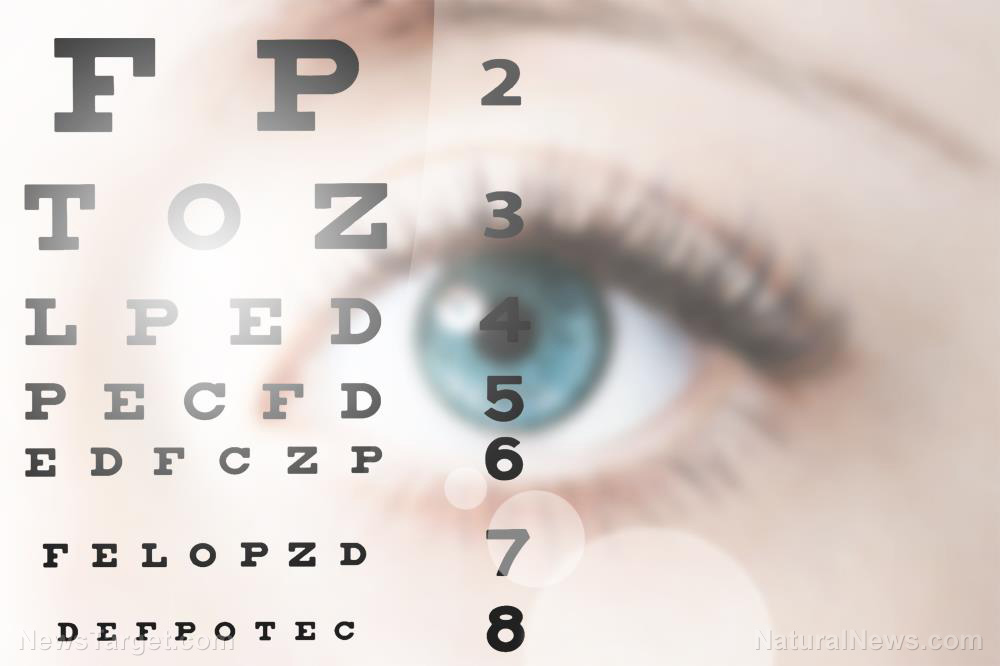Effective supplements that reduce risk of macular degeneration
04/22/2019 / By Edsel Cook

Prevention is still the best cure for diseases. In the case of macular degeneration, there are fatty acids, vitamins, and plant-based compounds that can be taken as supplements to protect the eyes from age-related deterioration.
The macula and the nearby photoreceptors of the retina are important for maintaining central vision. As time passes, these parts get worn out and break down, causing vision to slowly but steadily get worse. This condition is called macular degeneration.
Damage caused by macular degeneration cannot be healed, but if the condition is diagnosed in its early stages, degeneration can be attenuated by adopting the right diet or taking supplements that help maintain eye health.
Food-wise, carrots and dark leafy vegetables are the best sources of nutrients that support the health of the macula and the retina. (Related: It’s possible: Nutritional recommendations that prevent age-related macular degeneration.)
Omega-3 fatty acids are also good for the eyes
Fish contain large amounts of omega-3 fatty acids. In addition to improving heart and vascular health, these fatty acids also benefit people who are diagnosed with age-related macular degeneration (AMD).
Researchers from the University of Melbourne say that consuming high levels of omega-3 fatty acids may help prevent age-related macular degeneration from progressing. Their study shows that eating fish at least twice a week can decrease the risk of both early and late AMD.
However, omega-3 fatty acids do not confer the same benefit to people who already have macular degeneration. Omega-3 from both diet and supplements cannot reverse loss of vision caused by this condition.
Macular degeneration can be prevented by taking antioxidants, vitamins, and zinc
Vitamins are necessary for maintaining good health. The eyes are just one part of the body that require sufficient amounts of vitamins on a daily basis. The three most important vitamins for healthy eyes are vitamin B12, vitamin C, and vitamin E.
In a 2001 study by the Age-Related Eye Disease Study (AREDS) Research Group, researchers gave more than 4,000 patients with macular degeneration either or both antioxidants and zinc as treatment. The results showed that taking zinc and antioxidant tablets together significantly reduced the chances of further macular degeneration, especially when compared to solo treatments using zinc or antioxidants alone.
While taking vitamin E is a proven way to ensure the health of photoreceptors, it is not effective against macular degeneration. The results of a 2010 study by Brigham and Women’s Hospital researchers show this.
Lutein and zeaxanthin supplements are very promising for macular degeneration patients
Plants contain numerous natural compounds that bring many benefits to human health. Two of these compounds are lutein and zeaxanthin, a carotenoid and carotenoid alcohol that can sustain the integrity of macular tissue and retinal photoreceptors.
Studies have shown that taking lutein and zeaxanthin supplements can increase the density of macular tissues. Furthermore, long-term use of lutein and zeaxanthin supplements confers extensive benefits.
In conclusion, nutritional therapy can considerably slow down the onset of macular degeneration. Fish oils rich in omega-3 fatty acids, multivitamins, and supplements containing lutein and zeaxanthin can also improve eye function. Patients suffering from macular degeneration should consider taking these supplements to preserve their eyesight for as long as possible.
Sources include:
Submit a correction >>
Tagged Under:
antioxidants, eye health, fish oils, lutein, macula, macular degeneration, nutrients, omega-3 fatty acids, photoreceptors, prevention, retina, supplements, vitamins, zeaxanthin, zinc
This article may contain statements that reflect the opinion of the author
RECENT NEWS & ARTICLES
COPYRIGHT © 2017 NUTRIENTS NEWS





















